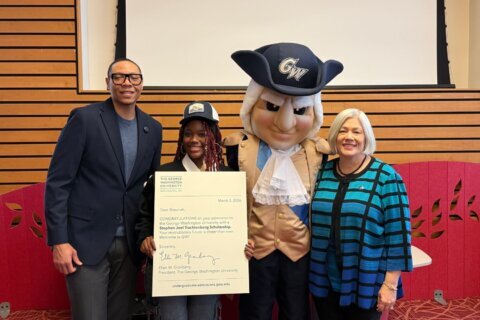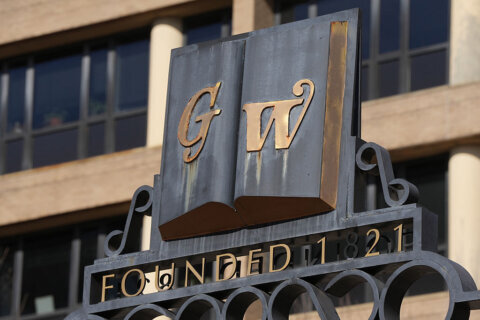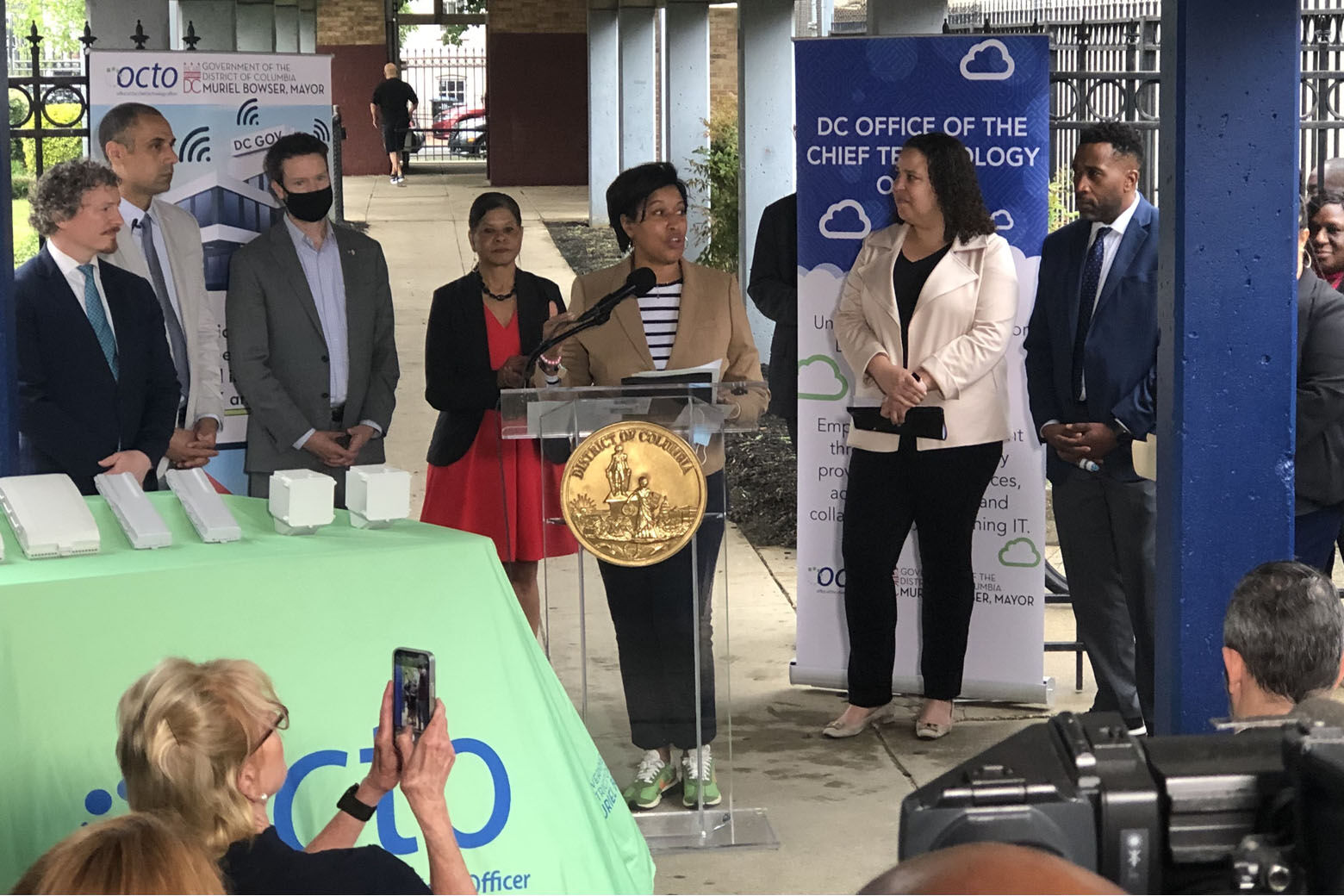
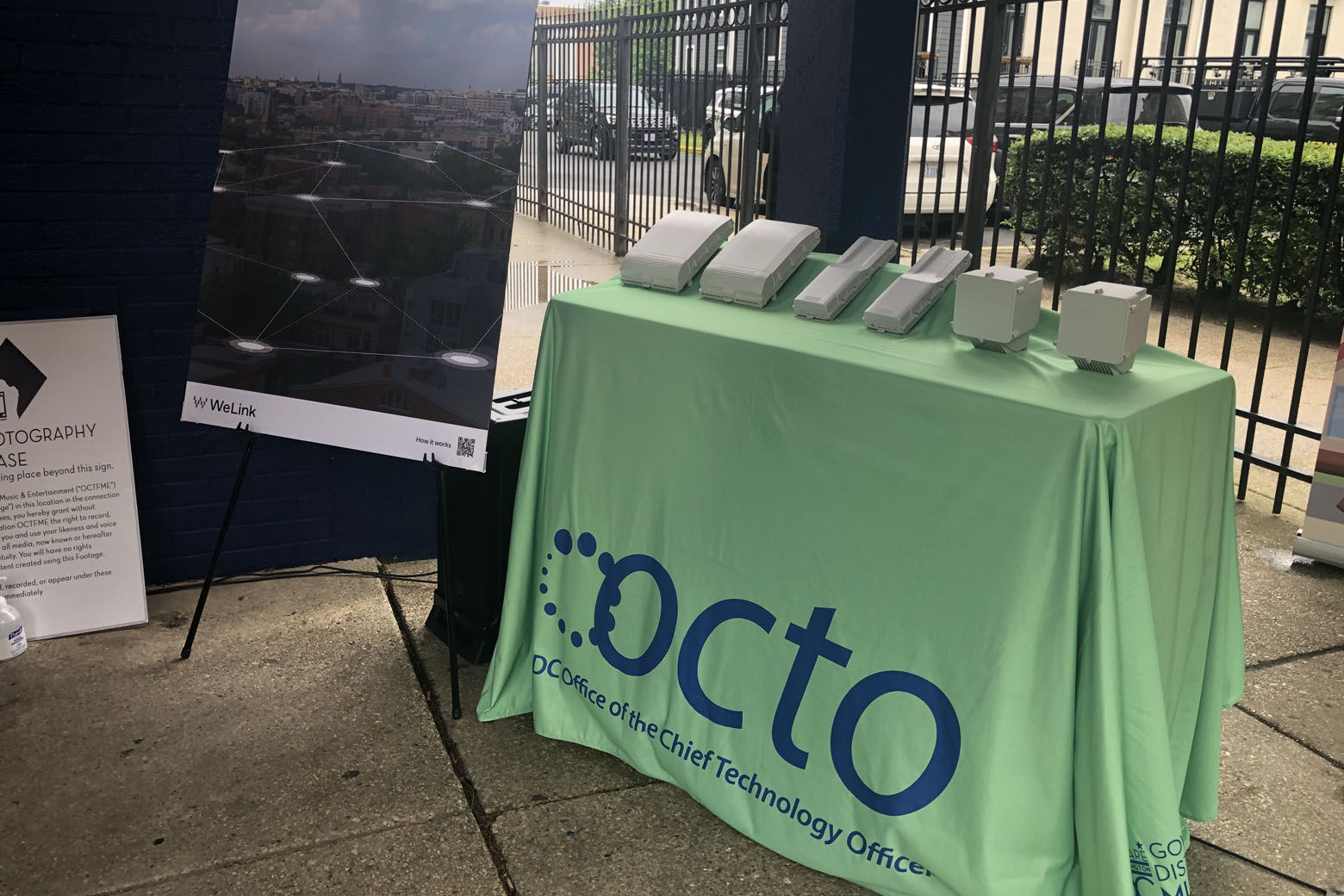
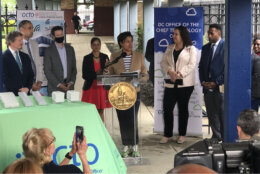
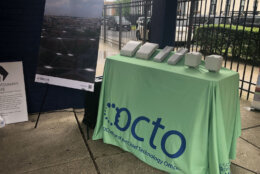
High-speed wireless internet at low or no cost is coming to people who qualify in some D.C. neighborhoods.
The deal involves partnerships between D.C. and internet service providers, who have been given permission to put antennas on city-owned rooftops if they agree to provide reduced or no cost high speed connections to households eligible for the federal Affordable Connectivity Program.
The city’s new Community Internet Program is offering internet providers access to the roofs of 650 buildings throughout D.C. so they can deploy networks in harder-to-reach communities.
“At WeLink, we believe those most in need deserve the fastest speeds and shouldn’t have to compromise simply because they can’t afford higher speed offerings,” Kevin Ross, founder and CEO of WeLink said at a Monday briefing.
With the help of the federal funding, Ross said verified households will get wireless “gigabit symmetric broadband service.”
“This represents a greater than 10 times faster download and 100 times faster upload,” than other offerings in the federal program. “There’s simply nothing like this available today,” he explained.
“Because it’s wireless, it’s faster to deploy, and is substantially more cost-effective than traditional wired broadband technologies. And unlike fiber, we can launch our wireless network without disruptive construction,” he said.
WeLink is the city’s first partner to participate in the Community Internet Program; it expects to begin installing neighborhood hubs in Wards 5, 7 and 8 next month.
“We’re going to start in the Ward 5 neighborhood of Trinidad,” Lindsey Parker D.C.’s chief technology officer said. “That should happen in the next 30 days where we’ll have people knocking on doors and saying, ‘Hey, would you like some internet?'”
The briefing announcing the partnerships occurred at Potomac Gardens Family and Senior Housing in Southeast, which had free Wi-Fi activated a few weeks ago as part of a separate D.C. initiative.
The pilot program between the Office of the Chief Technology Officer and the D.C. Housing Authority activated free in-home high-speed internet and digital literacy training at two D.C. Housing Authority locations in Ward 6 — Potomac Gardens and the Hopkins Apartments.
Also announced at Monday’s briefing is the creation of a new State Broadband and Digital Equity Office within the Office of the Chief Technology Officer to support the city’s digital equity initiatives.
After the briefing, Parker told WTOP the city’s latest move to bring high-quality connectivity to residents of all incomes is a game changer.
“Eighty percent of the jobs that are going to be existing in 2030 haven’t even been thought about today. And a lot of that is because of internet, because of technology and jobs that will come about in the next few years that we can’t even contemplate,” she said.
“To make sure our next generation is online now, beginning to learn — having that exposure, it’s critical to make sure that our competitiveness as a city is maintained, but also that that next generation of Americans are really able to kind of go out there and continue to compete globally. So I’m excited. I think this is a game changer. And we’ve got more work to do.”



